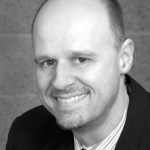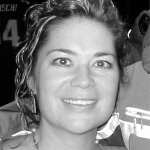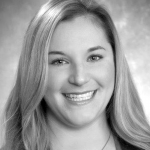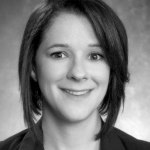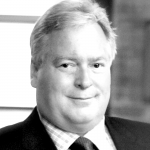
James Harnsberger
After an extended national search, James Harnsberger has been named associate vice president for Graduate Education, Grants, and Sponsored Research at Springfield College. President Mary-Beth Cooper and Provost and Vice President for Academic Affairs Martha Potvin recently made the announcement. Harnsberger will join the college on Feb. 15, and will be responsible for elevating the status of graduate education at Springfield College as well as for increasing the college’s capacity to generate and support externally funded grants and sponsored funding. “In both of these primary responsibilities, his thoughtful approach, his experiences in supporting students and the work of faculty, and his success in managing large contracts and overseas operations will serve him well,” said Potvin. A linguist and speech scientist with extensive experience in experimental phonetics, forensic acoustics, and clinical applications, Harnsberger comes to Springfield College from the University of New Haven, having previously overseen the launch of an international branch campus as campus dean. His responsibilities included international grants and contracts, program development, and operations, as well as the inaugural Academic Bridge Program for international students at UNH. Harnsberger earned his doctorate in linguistics from the University of Michigan, where he conducted research on cross-language variation in the perception of non-native speech sounds. Following a post-doctoral fellowship at Indiana University, he served at the Department of Linguistics at the University of Florida, conducting research on the perception of speaker characteristics such age, gender, emotion, dialect, stress, and deception. His research has been published in numerous academic journals and reported in the popular media, including ABC News Primetime, BBC Radio, and Science News. He has served as a linguistic consultant in numerous criminal and civil cases in the U.S., as well as government agencies including the Federal Bureau of Investigation, the Defense Intelligence Agency, the Office of the Director of National Intelligence, the Defense Academy for Credibility Assessment, the Senate Select Committee on Intelligence, and the House Armed Services Committee.
•••••
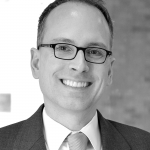
Dr. Mark Dumais
Dr. Mark Dumais was appointed to the position of chief medical officer for Mercy Medical Center. In this position, he provides clinical leadership and administrative direction in developing and attaining strategic and operating objectives related to medical practice and patient care at Mercy Medical Center and its affiliates. He also serves as a liaison between administration and the medical staff and provides leadership in advancing quality initiatives, clinical care, patient satisfaction, and physician/employee satisfaction. With almost 20 years of clinical leadership experience, Dumais most recently served as a medical hospitalist at Massachusetts General Hospital and as an instructor in Medicine at Harvard Medical School. Before coming to Boston, he served as chief medical officer and Senior Vice President of the University of Maryland Charles Regional Medical Center (UMCRMC) in LaPlata, Md., where he oversaw performance management, quality, safety, risk management, compliance, and privacy, and gained extensive experience in population health, physician network planning, and information technology. Prior to his role at UMCRMC, he served as vice president of Medical Affairs, clinical chief of Internal Medicine, and director of hospitalists at Southern Maryland Hospital Center in Clinton. Board-certified in internal medicine, Dumais received his medical degree from Harvard Medical School in Boston and completed his internship and residency in internal medicine at Duke University School of Medicine in Durham, N.C. In addition to his medical education, he holds a master’s degree in business administration from the Kellogg School of Management at Northwestern University in Evanston, Ill. “Dr. Dumais brings a wide range of clinical, operational, and leadership experience to this important position at Mercy Medical Center. We are pleased to welcome him to the Mercy team,” said Mark Fulco, president of Mercy Medical Center and its affiliates. Added Dumais, “Mercy Medical Center has a longstanding reputation for delivering high-quality, patient-centered care, and I welcome the opportunity to serve as a leader at this outstanding facility.
•••••

Karri May
Pinck & Co. Inc., a comprehensive real-estate-development and project-management services firm, announced Karri May joined the firm’s Springfield office as senior project manager. May brings to the firm 13 years of design and planning experience with a focus on healthcare, design for the aging, commercial, and higher education. She also has extensive client-management and business-development experience and will help grow the firm’s portfolio in Western Mass. and Connecticut. She previously worked at Steffian Bradley Architects as senior associate, where she specialized in the design and planning of healthcare projects in Massachusetts, Connecticut, and New York. Prior to that, she worked at Amenta/Emma Architects as a project architect, focusing on design for higher education, commercial, and senior housing/accommodations. May earned a bachelor’s degree in architecture from Pratt Institute and is a registered architect in Connecticut, a member of the American Institute of Architects, and a LEED-accredited professional. She also holds a Massachusetts Certified Public Purchasing Official Program designation and a Lean for Healthcare certificate. She is a frequent keynote speaker at industry and community events, has volunteered as a design mentor with CANstruction — a charitable organization for the design and construction industry — and has received several awards, including a Woman on the Rise designation from the Connecticut Professional Women in Construction. “As we continue to position our business to grow in Western Massachusetts and Connecticut, I am thrilled that Karri has joined our team,” said Jennifer Pinck, president and founder of Pinck & Co. “Not only does she bring a high level of expertise in planning and design and project management, she is passionate about the lasting impact built environments have on communities. Karri shares our commitment to putting our clients’ best interests first and going above and beyond to help them realize their vision.”
•••••
MGM Springfield President and Chief Operating Officer Michael Mathis announced that his full executive team is now in place. The team, a diverse group of industry professionals, will lead operations for MGM Springfield, set to open later this year. “This is an all-star team,” Mathis said. “Together, they bring years of experience and a broad expanse of skills that strengthens the deep bench of talent we already have in place. Each of them is committed, not only to the day-to-day objectives of their positions, but also to the greater role this property will play in the community. This team is the backbone of MGM Springfield, and we will proudly reflect and represent the diversity of the region in which we work.” For the 12th consecutive year, MGM Resorts International has been recognized as a Top Company for Diversity by DiversityInc, one of the nation’s leading sources on workplace-diversity management. Almost 69% of the company’s employees are minorities. About 44% of employees in MGM Resorts’ management ranks are women, while minorities comprise 43% of MGM Resorts’ management ranks. “The beating heart of MGM Springfield is our commitment to diversity,” Mathis said. Besides Mathis, the MGM Springfield management team also includes Anthony Caratozzolo, vice president, Food & Beverage; Alex Dixon, general manager; Anika Gaskins, vice president, National Marketing; Brian Jordan, director, Surveillance; Monique Messier, executive director, Sales; Sarah Moore, Vice President, Marketing, Advertising & Brand; Marikate Murren, vice president, Human Resources; Jason Rosewell, vice president, Facilities; Jason Rucker, executive director, Security; Lynn Segars, vice president, Slot Operations; Gregg Skowronski, executive director, Hotel Operations; Talia Spera, executive director, Arena Operations; Seth Stratton, vice president and general counsel; Courtney Wenleder, vice president and chief financial officer; and Robert Westerfield, vice president, Table Games. In 2000, MGM Resorts became the first company in the gaming and hospitality industry to voluntarily adopt a formal diversity and inclusion policy. This is a critical pillar of the company’s enterprise-wide social-responsibility platform, which also includes community giving and environmental sustainability as key elements.
•••••

Mary Chiecko
AdCare chose Mary Chiecko, Community Services representative for Western Mass., as its Employee of the Month for January. “Mary Chiecko is always positive and a great listener, which is key to knowing what our referral sources need and want,” said Georganna Koppermann, vice president of Marketing and Development at AdCare. “As part of ‘Team Springfield,’ Mary has connected new patients with our expert clinical staff helping to make Springfield the second-largest outpatient office in our system.” Chiecko’s diverse sales experience includes working as a toxicology representative, presenting services to addiction-treatment facilities, primary-care physicians, and pain-management practices regionally. She has a bachelor’s degree in business administration from American International College in Springfield.
•••••
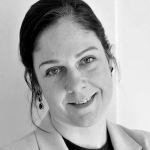
Megan Murphy Wolf
The Solidago Foundation, a Northampton-based national social-justice foundation, announced it has hired Megan Murphy Wolf as director of partnerships. A newly created position, the director of partnerships will focus on developing, supporting, and enhancing partnerships for the Solidago Foundation. Wolf will be responsible for the design and implementation of donor cultivation and engagement, as well as foundation partnership strategies. “Megan joins our team with deep expertise in creating meaningful partnerships across unlikely actors, as well as a legislative background that will enhance our support of grassroots advocacy groups,” said Elizabeth Barajas-Román, CEO of the foundation. “We are happy to welcome her at this exciting time for the organization.” Wolf brings a strong background in both development and public-policy work. Prior to joining Solidago, she worked as director of class campaigns and annual fund leadership giving at Amherst College. During her time at Amherst, she was successful in her personal solicitations, securing multi-year pledges and outright gifts, increasing the yearly totals by 300% and successfully breaking Amherst giving and participation records every year. She has also worked as legislative director for two congressmen in the U.S. House of Representatives. “This is an incredible opportunity to be a part of an organization with a long history of impact within the field of social justice, sustainability, and the fundamental right to work,” Wolf said. “I have focused my career on these important issues, and I believe we have the ability to create positive social change through collaboration and collective support for shared goals. I’m honored to join the Solidago family and be a part of this impressive group of people dedicated to support for the common good.” Throughout her career, Wolf has worked to create partnerships, both political in nature and as fund-building coalitions, to bring about positive social change. As director of partnerships, she will be responsible for working on developing programming and content for donor recognition and campaign-related programs and events for the foundation. “I am thrilled to have Megan join our team and looking forward to working with someone with her expertise as we move forward with our new business model,” said Jeff Rosen, chief financial officer of the foundation. “Adding Megan to the team will enhance our ability to bring resources to the field and amplify our impact at an important time for our partners.”
•••••
Marty Holmes was recently named top corporate search consultant at Management Search Inc. Holmes, president of the West Springfield division of the privately held recruiting firm, was recognized with the organization’s prestigious President’s Club Award for sales excellence in 2017. This year also marked Holmes’ 30th anniversary with Management Search Inc. Throughout his tenure, Holmes has worked to perfect a time-tested recruitment process and, in the process, has established deep roots in the market with a diverse client base in manufacturing and a niche focus within the shooting-sports industry. His hands-on consultative approach, along with his extensive knowledge of the industries he works in, have worked together to build and strengthen his reputation among clients and candidates alike. Headquartered in West Springfield with an office in Providence, R.I., Management Search Inc. has grown to become one of the largest privately held recruiting firms in New England, boasting 35 years of recruiting experience and 15 established consultants.
•••••
On Jan. 1, Aelan Tierney became the third principal and the president of Kuhn Riddle Architects. Tierney joins Jonathan Salvon and Charles Roberts, who became principals in 2010 when Chris Riddle retired. John Kuhn passes the torch of leadership and ownership to these three, and he will continue to work on selected projects at Kuhn Riddle. Kuhn Riddle Architects moves into the future as a woman-owned architecture firm as Tierney now owns the majority share of the company. She will continue to work on architectural project design, while also taking on a larger role in day-to-day management of the firm, focusing on business growth and maintaining a strong connection with clients and business partners. “I see this transition as an opportunity to carry on the legacy of Kuhn Riddle Architects, as well as an opportunity for growth,” said Tierney, who has been an architect at Kuhn Riddle Architects since August 2005. “I am honored that the partners have put their faith and trust in me to take on such an important leadership role. We will continue the company culture and its legacy of good design, excellent service, commitment to the environment, and giving back to our community that John Kuhn and Chris Riddle have built over the last 40 years.” Kuhn Riddle projects in which Tierney has played a lead role include Amherst Montessori School and Children First in Granby, the Kringle Candle flagship store and Farm Table Restaurant in Bernardston, the historic Easthampton Town Hall performance space for CitySpace, the Northeast Veterans Rehabilitation and Training Center in Gardner, Olympia Oaks multi-family affordable housing in Amherst, PVPA Charter School Theater in South Hadley, and projects at American International College, Western New England University, and Elms College. Kuhn Riddle Architects has been in business since Riddle and Kuhn founded it in 1977, when they negotiated a $500 fee to produce a design for Northampton’s Armory building renovation and rented two drafting tables in a fellow architect’s office. Since that time, the firm has become a well-known architectural firm in the Pioneer Valley and designs commercial, educational, and residential projects throughout Massachusetts.
•••••
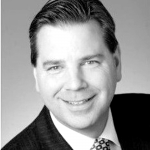
Terry Ramey
A seasoned chief information officer for some of the world’s largest healthcare payor organizations, Terry Ramey has joined Holyoke-based healthcare consultancy VertitechIT as an executive project officer (EPO). He will lead engagements with large healthcare systems as the company continues to expand operations throughout the East Coast and across the country. Ramey previously held senior technology titles at PerformRX (a subsidiary of AmeriHealth Caritas), Penn Mutual Life Insurance, CIGNA Health Services, and Dendrite International. As a nationally recognized healthcare technology executive, he says he was looking to make an impact on the provider side of the industry. “At CIGNA, Penn Mutual, and other major payor organizations, my responsibilities were to leverage technology to positively affect the bottom line,” he noted. “At VertitechIT, I have the opportunity to help transform hospital IT departments with a direct impact on patient care. It’s not often that an IT executive gets to do that.” VertitechIT CEO Michael Feld agrees. “Our work at work at major health systems goes far beyond designing and implementing cloud strategies, overhauling infrastructure, and streamlining operations. As an EPO, Terry will counsel clients on the IT initiatives that can literally change the way doctors do their jobs.” Working at the executive level within a healthcare organization, EPOs oversee a collaborative office of the CTO (oCTO), implementing VertitechIT’s proprietary LeverageIT process. Working side by side with senior internal managers, the oCTO refines strategic directives and implements tactical solutions that make organizations more profitable and efficient.
•••••
Max Kiperman joined the Red Lion Inn culinary team as executive chef of the Red Lion Inn’s Main Dining Room, Widow Bingham’s Tavern, and the Lion’s Den. As executive chef, Kiperman will work closely with Vice President of Culinary Development Brian Alberg and Sous Chef Jim Corcoran on all future food- and beverage-related development in addition to day-to-day kitchen management. With a tenure of more than 25 years in the culinary industry, Kiperman comes to the Red Lion Inn most recently from Lucca in Boston’s Back Bay, where he worked as sous chef, and as culinary consultant to the Viceroy Hotel and Resort in Zihuantanejo, Mexico. Kiperman began his culinary career at Rosalie’s Restaurant in Marblehead before training under three Michelin chefs, including Sylvain Portay and Alain Ducasse. Kiperman now brings his expertise and passion for cooking with locally sourced products to the Berkshires. “Max’s diverse culinary portfolio and his commitment to the farm-to-table movement make him the perfect addition to lead the Red Lion Inn’s culinary team,” said Alberg. “We are confident his leadership and expertise will elevate the inn’s dining experience and continue to evolve the offerings to exceed our guests’ culinary expectations.” Kiperman’s extensive résumé includes work in hotels and resorts such as the Ritz Carlton properties in San Francisco, New York City, and Boston, and the Four Seasons Hotel and Resort in Nevis West Indies; restaurants like On Lot Restaurant in Hong Kong and Mix Restaurant in Las Vegas; and work as a private chef in New York and Connecticut. Recently refreshed breakfast, lunch, and dinner menus await guests at the Red Lion Inn’s Main Dining Room and Widow Bingham’s Tavern, highlighting the inn’s long-standing relationships with local and regional purveyors. The inn offers guests two additional dining options, the Lion’s Den, with nightly live entertainment, and seasonal outdoor dining in the Courtyard from June through September.
•••••
The Community Foundation of Western Massachusetts, in partnership with the Estate Planning Council of Hampden County and the Pioneer Valley Estate Planning Council, has awarded Kate Kane the 2018 Distinguished Advisor in Philanthropy Award. The award was presented by Katie Allan Zobel, president and CEO of the Community Foundation, and Amy Jamrog, wealth management advisor at the Jamrog Group, at a luncheon on Jan. 9. The purpose of the Distinguished Advisor in Philanthropy Award is to recognize the important work that professional advisors (estate-planning attorneys, financial advisors, and accountants) do in encouraging their clients to engage in local philanthropy for the region. As Zobel noted, “professional advisors play a quiet and often unsung role in advancing philanthropy. The Community Foundation has been working alongside local advisors for over 25 years, and we see first-hand the meaningful work they do by connecting their clients’ generous intentions to needs in our community. Their efforts have helped create a significant base of funding for scholarships and grants to nonprofits in our region.” Zobel also said she is pleased to be giving this award to its first female recipient. Past awardees include George Keady III, Dick Gaberman, Dennis Bidwell, Jack Ferriter, and Steven Schwartz. Kane received a plaque and $1,000 to recommend as a grant to the charity of her choice. Kane is managing director of Northwestern Mutual in Springfield, where she matches clients’ needs with innovative solutions utilizing insurance services and internationally recognized investment products. “Financial advising is a business of words and stories,” she said. “The numbers are simply tools to further the pursuit of hopes and dreams for ourselves, our families, and our communities. We give our clients the gift of listening to their stories and helping them connect with the right decisions to fulfill their aspirations and leave a legacy.” Well-known for her volunteerism and philanthropic spirit, Kane is a former board member (2008-15) and past board president of the Women’s Fund of Western Massachusetts. She currently serves on the boards of directors for Elms College and Girls Inc. of Holyoke and is vice chair of the board of trustees for Springfield Museums. She co-wrote the original business plan for the local chapter of the Dress for Success, which supports the career and economic advancement of women, and she serves as a business mentor for many young entrepreneurs in the region. Kane has been recognized with many awards in the past for her commitment to strengthening her community, including Affiliated Chambers of Commerce of Greater Springfield’s Richard J. Moriarty Citizen of the Year in 2015, Western Mass Women magazine’s Professional Woman of the Year in 2012, Professional Women’s Chamber Woman of the Year in 2011, and a BusinessWest Difference Maker in 2009.
•••••
Edward Alford of South Hadley was installed as president of the 1,800-member Realtor Assoc. of Pioneer Valley on Jan. 9. The installation of officers and directors took place at the Log Cabin in Holyoke. More than 100 people attended the organization’s 103rd annual installation ceremony. Donald Thompson, the association’s 2008 president, served as emcee for the event. The other officers installed were Kelly Bowman as president-elect, Sue Drumm as treasurer, Elias Acuna as secretary, and Rick Sawicki as immediate past president. The directors installed include Shawn Bowman, Peter Davies, Janise Fitzpatrick, Sara Gasparrini, Sharyn Jones, Cheryl Malandrinos, Sue Rheaume, and Russell Sabadosa. Alford was joined by Massachusetts Assoc. of Realtors (MAR) President Rita Coffey, who served as the installing officer. Coffey’s leadership team from MAR was also in attendance, including Anne Meczywor, president-elect; Kurt Thompson, secretary/treasurer; Paul Yorkis, immediate past president; and Rob Authier, CEO.
•••••
Heather Roy recently completed the Precision Nutrition Level 1 Pro Coach certification at Conca Sport and Fitness (CSF). Members have been losing more than 20 pounds thanks to the innovative nutrition and fitness plan offered by Precision Nutrition and Conca Sport and Fitness, CSF owner Steve Conca said. He added that being able to deliver comprehensive fitness and nutrition programming that gets results and is easily adaptable for busy lifestyles was paramount in the company’s decision to move forward with the certification program. CSF, which opened in 2009, provides fitness coaching both online and in the studio, either in a one-on-one or small-group environment.







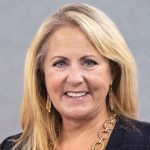
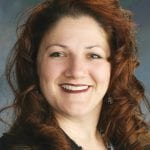


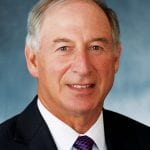
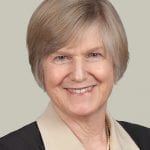


 Consider this — tomorrow, you take a terrible fall.
Consider this — tomorrow, you take a terrible fall.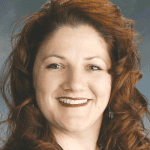












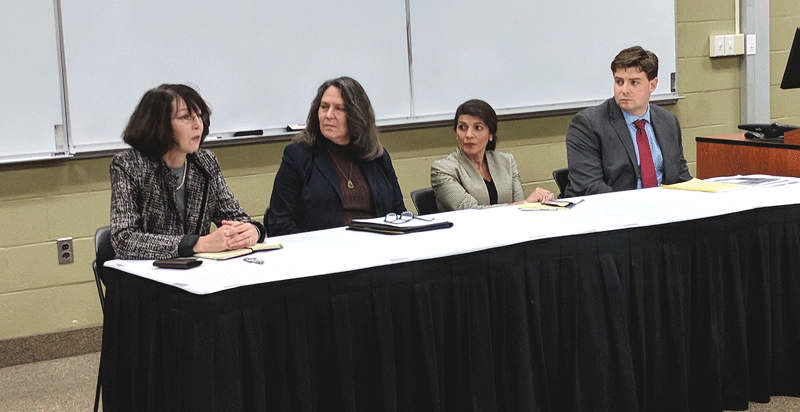






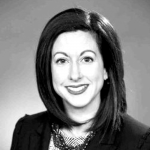


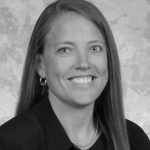





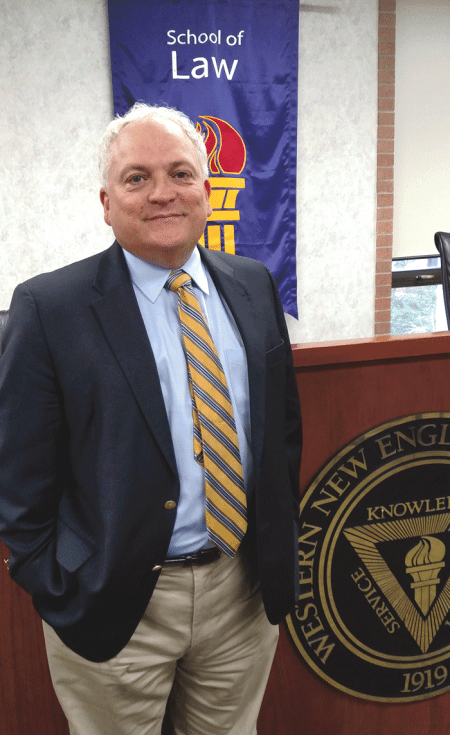

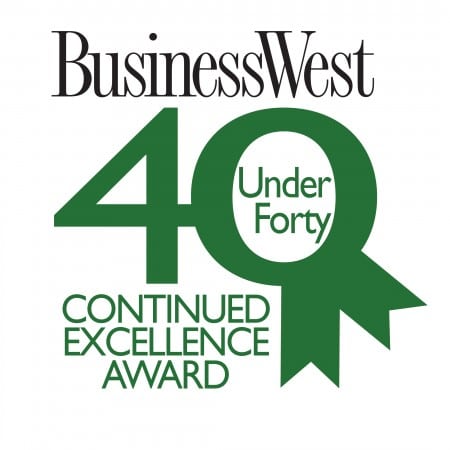
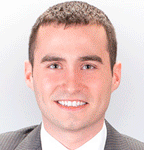
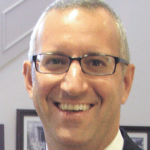


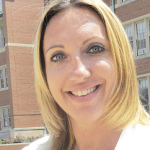

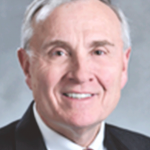

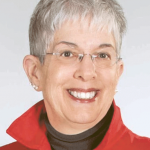
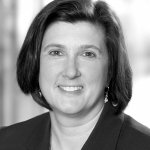


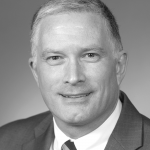
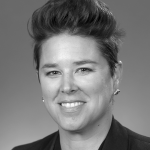

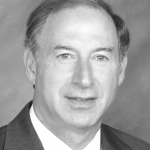
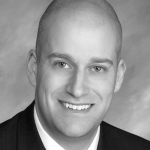

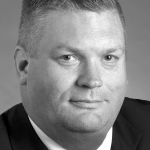

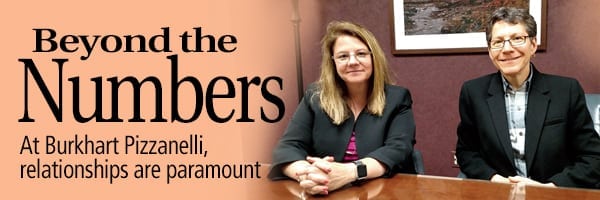
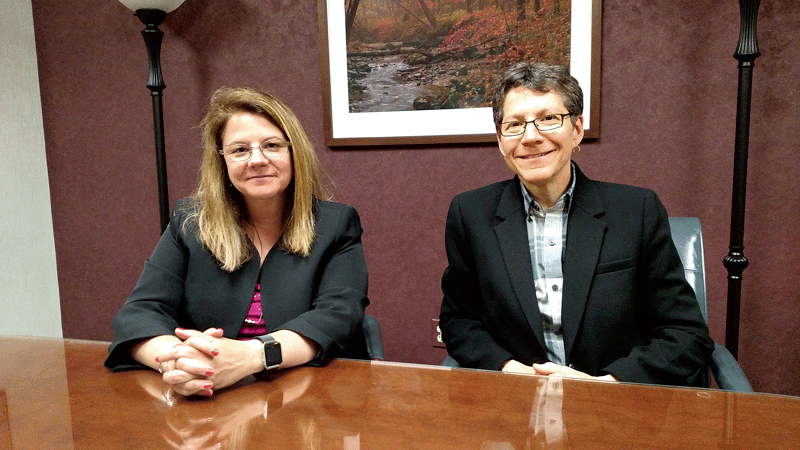
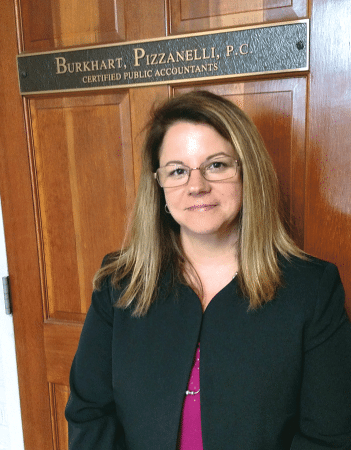







 Charlotte Cathro calls herself a “solver.”
Charlotte Cathro calls herself a “solver.”